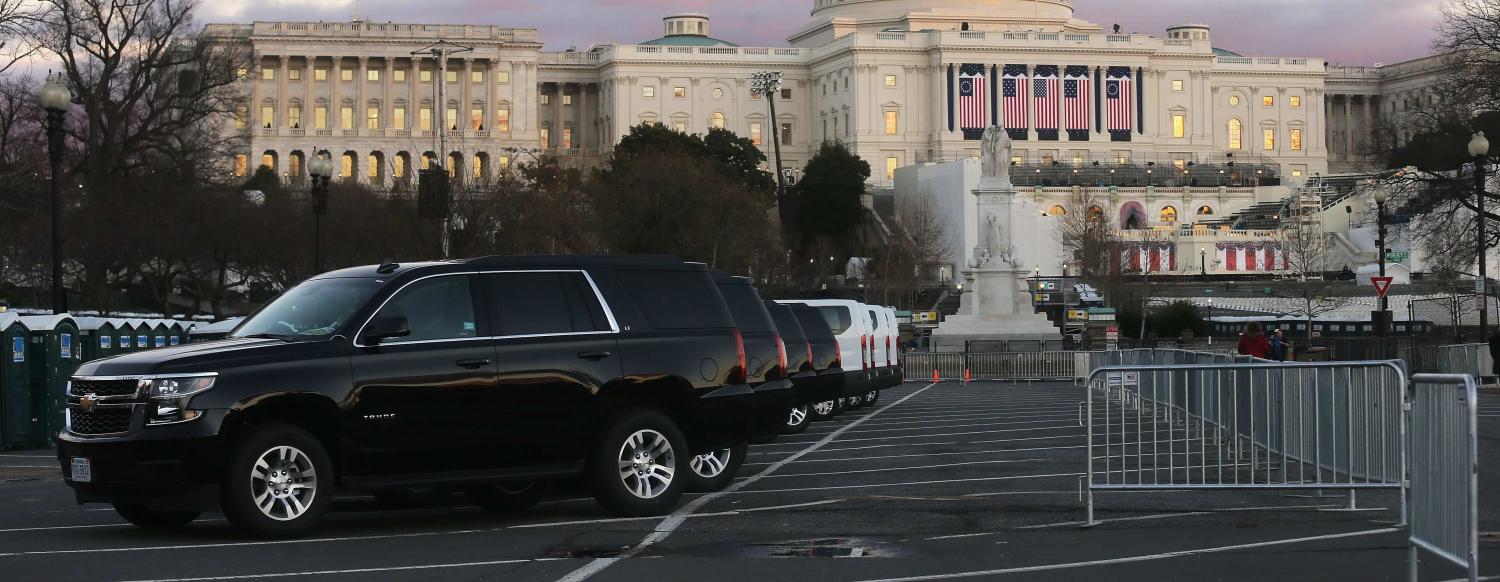Taiwan’s President Tsai Ing-wen has sent an 11-strong cross-party delegation to today’s inauguration of President-elect Donald Trump, urging them to interact with and thank Trump.
This is a time of high tensions between China and the US. From Beijing’s perspective, relations are conducted only on the basis that Taiwan is part of China, and therefore any recognition of Taiwan is a violation of this agreement. In his first month as President-elect, Trump broke this protocol and received a phone call from President Tsai, the first known contact between leaders (or leaders-elect) of the US and Taiwan in over three decades. Trump has consistently called the 'One China' policy into question. Last week he reiterated this stance in an interview with the Wall Street Journal, maintaining that it was up for negotiation, potentially hoping that he will win leverage over Beijing and pressure it to alter China’s exchange and trade policies.
The Taiwanese government has seen the opportunity, and has sent a delegation to Trump’s inauguration in the hope of influencing policy-makers and advisors. Exploring the background of the delegates may shed light on Taiwan’s intentions and why Beijing has condemned the delegation with such force.
The delegation leader
The leader of the delegation, Yu Shyi-kun, was a founding member of the ruling Democratic People’s Party (DPP), the only left-of-centre pro-independence party and alternative to the historically dominant Nationalist Party, the Kuomintang (KMT). Yu Shyi-kun served as Premier between 2002 and 2005, presiding over the cabinet under President Chen Shui-bian.
Yu represents a connection between this delegation and Chen’s outspoken views on cross-Strait relations. Yu shared some views with Chen; as Premier he advocated a ‘balance of terror’ across the Taiwan Strait to counter Chinese aggression. But he was also more moderate in many ways than Chen, advocating a less confrontational stance in the form a ‘go south’ policy, which aimed to reduce Taiwan’s economic reliance on China by prioritising relations with other Asian countries. Yu has also remained politically ambitious; in 2014 he narrowly lost the Taipei City mayoral election. He will be accompanied by his wife, Yang Bao-yu.
DPP delegates
Although this is a cross-party delegation, key DPP members seem to have been chosen on the basis of seniority and significance in the Party. Many have expressed worry over China’s prolonged effort to marginalise Taiwan’s ability to operate independently on the world stage by exerting pressure on third countries to renounce diplomatic ties, including recent case of Sao Tome and Principe abandoning relations with Taiwan in favour of China, and of Nigeria expelling the Taiwanese Representative Office out of the capital following a $40 billion Chinese investment deal.
- Lin Chia-lung: Mayor of Taichung and Secretary General of the DPP in 2006-2007. As an academic he has aired strong views on Taiwanese sovereignty, Taiwanese nationalism and Cross-strait relations.
- Chang Hua-kuan (also known as Helen Chang): Chiayi County Magistrate, has an academic background in international affairs and has been an elected magistrate since 2009.
- Tung Chen-yuan: National Security Council adviser, was in office when Obama authorised senior military exchanges between Taiwan and the US. His previous posts include being a member of the Legislative Yuan and Deputy Minister to Mainland Affairs Council.
- Chen Ting-fei: member of the Legislative Yuan since 2008. She is outspoken on the difference between Taiwanese and Chinese culture.

Taiwanese delegates meet with Ted Cruz in Washington. From left to right: Ko Chih-en, Lin Wei-chou, Lu Yu-ling, Ted Cruz, Chen Ting-fei, Freddy Lim, Chen Yi-chieh. Photo: Lin Wei-chou's Facebook page
Other delegates
The lawmakers from three other parties are notable for their progressive views, advocating for both LGBT rights and rights as Taiwanese citizens. Their inclusion alongside key DPP leaders seems calculated to send a strong message to Trump, projecting the image of a unified, single Taiwan.
- KMT Lawmaker Lu Yu-ling, representing Taoyuan, sat on both the previous and current Legislative Yuan. She has been outspoken on the importance of Taiwan’s political relations being separate and distinct from China’s, notably in a dispute with the Kenyan government.
- KMT Lawmaker Ko Chih-en, member of the current Legislative Yuan, has been part of a minority of KMT lawmakers prepared to meet with LGBT groups, and is sympathetic to their cause.
- KMT Lawmaker Lin Wei-chou, member of the current Legislative Yuan, is, like Ko, in the minority of KMT legislators willing to support the nascent LGBT movement.
- New Power Party (NPP) lawmaker Freddy Lim founded the NPP, which advocates for Taiwanese independence, as well as amending the civil code in favour of LGBT rights and human rights.
- The People First Party's Chen Yi-chieh has advocated for China to stop limiting Taiwan's space to conduct diplomatic relations. She has been critical of China pressuring Sao Tome and Principe to relinquish diplomatic relations with Taiwan and has explicitly advocated the possibility of considering alternatives to the 1992 consensus.
The cross-party delegation appears to be part of President Tsai’s continuous outreach to the US, aiming to represent a united Taiwan at the Trump inauguration. However, the DPP representatives may be so extreme in their support of independence (particularly given Yu’s association with Chen Shui-bian) that some Republicans might hesitate to advocate for their cause. The liberal inclinations of the other Taiwanese delegates, particularly in their support of LBGT rights, also jars with traditional Republican values, particularly those of Ted Cruz, who met with the delegation yesterday.
